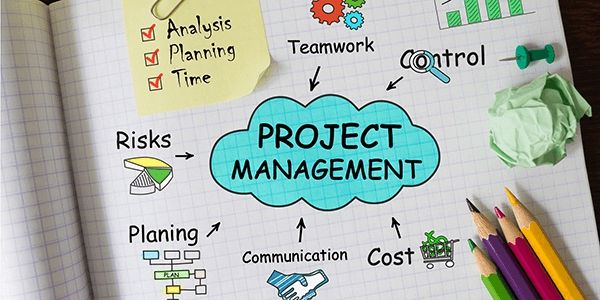Transparency and 4 other key trend predictions for Project Management
One of the fun things we get to do is authors of project management content as experienced project managers in the marketplace is trying to predict where things will be next year or the next four to five years.
Project management isn’t boring and it isn’t static. Project management is actually dynamic.. it just isn’t moving at a rapid pace. It’s changing and advancing at more of a snail’s pace. Nevertheless there are trends that will emerge in 2018 and beyond. It’s hard to predict what those are, but I’ll do my best. Let’s consider five key tends I think will be emerging in 2018 and I’m anxious to see what you what you think of these trend predictions and any observations, suggestions or ideas you have on your own in terms of where project management is heading in the next one to five years. Please be thinking of your own list as you read this and comment at the end so we can discuss this further.
For now here’s my list to 5…
Full transparency.
As we seek out greater project success stories coupled with increased customer confidence and satisfaction, one key way we can do that is by incorporating complete transparency into our project management methodology. I’m devising my own PM methodology – 3D PM – and it’s built on… among other things… complete transparency. I’ve been watching too much political and news untruths and I’ve grown tired of the weak business individuals who must find their successes and control through lies, deceptions and omissions.
Extreme accountability.
I’m sure you’re all aware of the “Me Too” movement. Empowered and supported individuals are coming forward with admissions of being victims of all sorts of abuses and harassments – sexual, mental, physical, etc. it hard for them to do that…I can’t begin to imagine how hard, thankfully. But what it is also doing is creating a society of, and appreciation for, complete accountability. I would never want to belittle these revelations and experiences by comparing them to things in the business world, but this type of societal accountability is going to transfer to projects that we engage in with and for our customers. Be upright, be straightforward, be honest, be forthcoming, be of high integrity. It will be expected and it will be a better PM world for it.
[widget id=”custom_html-68″]
Earlier project manager involvement.
I think most of us realize that project managers need to be involved early in the project process. It’s a given that it would be helpful from a planning and customer delivery expectation setting standpoint, but most organizations still still tend to wait until
the project is developed conceptually before handing it off to the project manager. Well that’s fine in a perfect world but the project management world is far from perfect. So what happens is this: the project manager spends time in the first quarter of the project resetting customer expectations to what the real project management world can deliver as opposed to what account managers have sold the project customer. If we involve project managers at the beginning, treating them more as full scope engagement managers than project managers, then expectations can be set appropriately from the very outset of the engagement. I see this is an absolute necessary trend for 2018 if we want to continue to realize increased project management success stories.
Project teams of one.
Let’s see a project management team at one – what can I do? I say that a bit facetiously as the project team of one is really just the project manager, but he can’t do it alone. He may, however – in our new reality – be the only direct employee or contract employee of the delivery organization and the rest the team in many cases will be a distributed team of independents throughout the world as a virtual team but not employees of the root of the delivery organization. Rather they are outsourced individuals with extreme experience for the technology being used and specific project being undertaken. This sounds logical and this may sound a lot like of what we are doing now. I believe in many cases it will be the best case scenario in the project management world going forward – especially on high tech projects that are going to require the best of the best in 2018.
New, diverse project management tools.
As a consultant I worked with many small to medium size businesses who are developing project management software for many different uses. Most now like to advertise their wares as enterprise PM solutions. Many start small and try to grow too quickly. That’s unfortunate but strong ones last and I think we’re going to see new project management tools that do gain traction, stay in the game and offer stronger reporting, stronger task management, stronger risk management, and stronger financial management capabilities for project managers and teams. These will be more like ERP type or EWMS type solutions for the project and the organization so they can more efficiently manage all work and resources in 2018. It has to happen for success to happen regularly.
Summary / call for input
So that’s it…. nothing too earth shattering, but hopefully some thought provoking topics and trends. 2018 will be different… no doubt about it. It has to be – we can’t go on delivering success on less than 50% of our projects (according to most surveys and research).
Readers what are your thoughts and do you agree? Do you have your own list in five or ten trends that you think we might see in 2018? Project management has to change and software has to change in order for us to manage our projects better and engage our customers better. Of course, better customer engagement equals increased customer satisfaction. We must get there and that will be the overall trend for 2018, in my opinion. Please feel free to share your thoughts and your own lists and let’s discuss this… thanks for reading.




